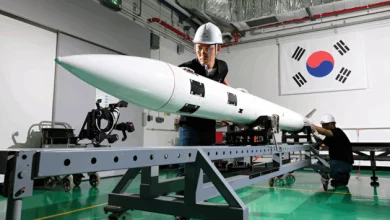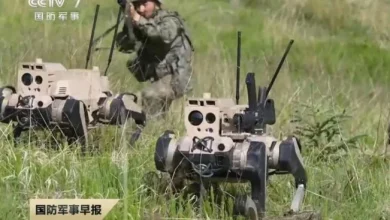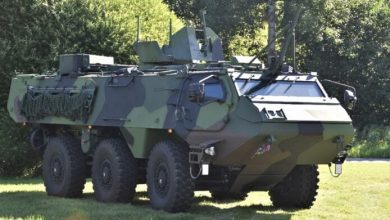Analysis: Israel-Hezbollah war will be costly

Tel Aviv must recognize that its strategic calculations will entail significant costs
This situation is not sustainable, especially for Israel. Israel has lost on the military, diplomatic, legal and global public opinion fronts due to its unjust war in Gaza. Many experts say that Israel’s strategy of destroying Hamas is unlikely to achieve its military objective. On the diplomatic front, the situation does not seem to be in Israel’s favor. On the legal front, Israel is seen as a genocidal state in Gaza and is about to be convicted of war crimes. In the eyes of the international community, it has already been condemned. Now, by targeting Lebanon, Israel is trying to spread the war and win back allies who have abandoned it.
This time, however, Israel must realize that its strategic calculations will come at a greater cost. The Israel-Hezbollah conflict is deeply intertwined with broader regional dynamics and the interests of various stakeholders. Israel should reconsider that the war against Hezbollah will not be a war like the war against Hamas in Gaza. It is also wrong for Israel to think that this time, it will be a war similar to the 2006 war. More importantly, Israel’s war strategy against Hamas was unrealistic and did not achieve what it wanted. Hezbollah is a different case and Israel’s calculated war strategy against Lebanon will not work either. From a regional geopolitical perspective, a war against Hezbollah would further antagonize regional countries against Tel Aviv. Hezbollah will, therefore, be a formidable military actor for Israel, and this time, the war will be much more costly than the war in Gaza.
Iran factor
The first and most important strategic factor in the potential conflict is Iran’s approach to Israel’s war against Hezbollah. Iran’s approach to Hezbollah is different from that of Hamas. Iran’s support for Hezbollah is part of a broader regional strategy to gain influence in the Middle East and to counterbalance Israel’s power. This proxy dynamic intensifies the conflict, as any tension between Israel and Hezbollah will have wider implications for Iran-Israel military escalation. Iran has significantly increased Hezbollah’s military capacity in recent years by providing it with financial support, advanced weaponry and training. This support is part of Iran’s strategy to establish a strong foothold in Lebanon and use Hezbollah as a deterrent against Israel. More importantly, Iran sees Hezbollah as a critical component of the “axis of resistance” in the Middle East, which includes various Shiite militias aligned with Tehran’s strategic objectives.
By supporting Hezbollah, Iran aims to project power and influence in the Levant. This strategic maneuver allows Iran to exert pressure on Israel from Lebanon, creating a second front that can be deployed in times of conflict. Iran’s support for Hezbollah also strengthens Tehran’s position as a regional actor as a counterweight to U.S. and Israeli influence in the region. Iran’s presence in Syria and its mobilization of Shiite militants is another strategic leverage for Iran. The process that Iran is going through and the fear of weakening Hezbollah in a possible war may lead Tehran to act more harshly against Israel.
Hezbollah’s military capacity
Hezbollah’s military capacity is another factor that Israel should take into consideration. Hezbollah has significantly increased its military capacity following its involvement in the Syrian Civil War. This participation provided Hezbollah with both battlefield experience and advanced weaponry, making it a formidable actor in the region. Hezbollah fighters fought in various cities and regions of Syria, gaining extensive experience in various combat environments, including urban warfare and guerrilla tactics. Hezbollah has also used the Syrian conflict to train new fighters and expand its ranks.
Hezbollah has significantly improved its arsenal during and after the Syrian conflict. The group’s access to advanced weapons, often supplied by Iran, has increased its offensive and defensive capabilities. Hezbollah is believed to be “a militia force trained like an army and equipped like a state.” Hezbollah is estimated to possess tens of thousands of rockets and missiles, including short-range, medium-range and long-range systems. Notable among these are the Fateh-110 and Zelzal-2 missiles, which can reach deep into Israeli territory. The group is also known to have acquired precision-guided munitions that increase the accuracy and lethality of its attacks. Hezbollah’s arsenal also includes advanced anti-aircraft systems and guided anti-tank missiles (ATGMs). The group has improved its ability to counter Israeli armor and aircraft by acquiring man-portable air defense systems (MANPADS) and sophisticated ATGMs such as the Kornet. During the 2006 Israel-Lebanon war, Hezbollah successfully destroyed approximately 50 Israeli Merkava tanks. More critically, Hezbollah has developed a strong drone capability, with a variety of unmanned aerial vehicles used for reconnaissance and strike missions. The drone capability includes locally produced and Iranian-supplied models capable of surveillance and precision strikes.
Hezbollah’s military capability should also be reviewed in light of the increased Iranian military support to Hezbollah since Oct. 7. According to media reports, Iranian Fateh-110 short-range ballistic missiles (SRBMs) and their Syrian counterparts, the M-600, have been sent to Hezbollah, along with Falaq rockets, Russian Kornet ATGMs, and the newly developed Burkan improvised rocket-assisted munitions.
In terms of combat tactics, Hezbollah has developed hybrid warfare tactics, combining conventional military operations with guerrilla warfare and irregular tactics. This approach allows the organization to exploit the weaknesses of conventional armies such as Israel and sustain protracted conflicts. The war in Syria was an exceptional case for Hezbollah to redesign its war tactics, which greatly transformed Hezbollah’s fighting readiness.
Regional, international dynamics
Israel’s war against Hezbollah could also escalate the regional conflict and impose greater costs on Israel and its allies. The continuation of the Israel-Hezbollah conflict could, therefore, unfold in various ways, each with important geopolitical consequences and each could open the door to a chaotic period in the region.
Firstly, if the conflict escalates into a full-scale war, Lebanon is likely to suffer devastating consequences and further economic and political instability. Such a conflict could further destabilize the region by drawing in regional actors. Iranian involvement could lead to wider regional conflicts, especially given the uncertainties in Iranian politics in the post-Raisi era. A wider conflict would also destabilize the Middle East region and have far-reaching consequences for regional security. Already fragile countries such as Syria and Iraq could face spillover effects, leading to further chaos.
Stability in the Mediterranean is also at risk. “The enemy knows that what awaits it in the Mediterranean is also very important,” Hezbollah leader Hassan Nasrallah said. “The (Greek) Cypriot (administration) government should be warned that opening its airports and bases to the enemy to target Lebanon means that it has become part of the war,” Nasrallah said. The importance of the island of Cyprus is also a major security concern for Türkiye, as Foreign Minister Hakan Fidan has criticized Israel’s military and intelligence activities on the island. Therefore, Israel’s war against Hezbollah will be a source of concern for the countries in the region and the EU will be part of the conflict.
Secondly, a war against Hezbollah would undermine maritime security in the region due to Hezbollah’s military capacity. Remembering how the Houthis have destabilized maritime security since October 2023, Hezbollah has more leverage to destabilize the Mediterranean. Considering the dynamics of energy geopolitics in the Eastern Mediterranean, a full-scale Israeli attack on Hezbollah would bring new tensions and negatively affect energy supply, especially energy markets.
Another cost of an Israel-Hezbollah war is the possibility of a complete collapse of the rules-based structure of the international system. Given the devastation caused by Israel’s genocidal war in Gaza, a new war would confirm that international governance mechanisms are no longer fully functioning. This could set an example for other aggressor states and pave the way for more extensive conflicts. As Türkiye has repeatedly stated since October 2023, if Israel’s war on Gaza is not stopped, a larger and more comprehensive war in the region is inevitable.
Due to the genocide Israel has caused in Gaza and the crisis it cannot get out of, it has turned into an actor that threatens the stability of the entire region. The fact that Western actors, especially the Biden administration, ignore this danger may lead to the outbreak of comprehensive conflicts that will be much more difficult to prevent. The only way to stop Israel is to bring it back to the ground of rational state responsibility and to hold it to account for its actions in Gaza.
Source: DailySabah / Murat Yeşiltaş





